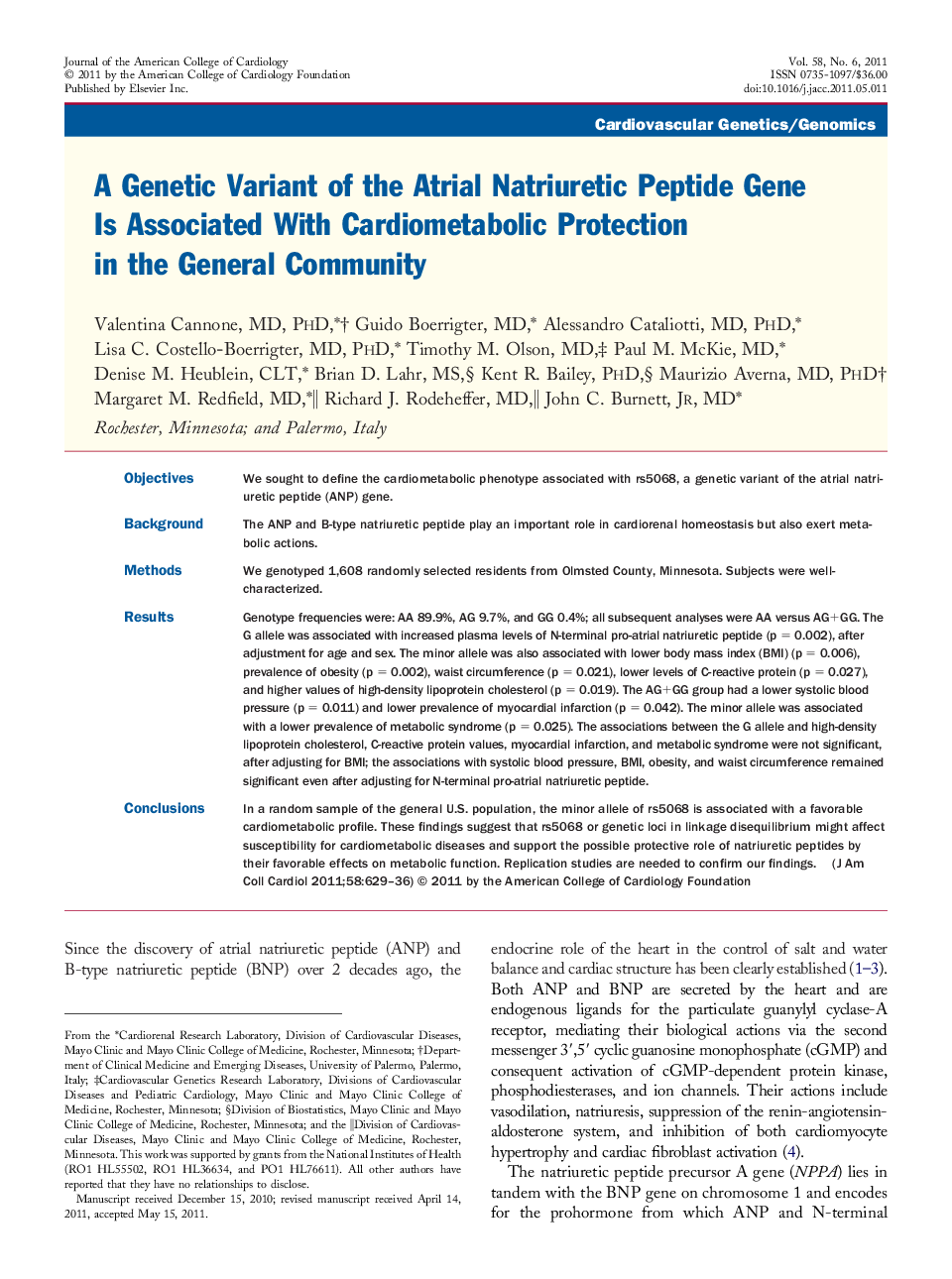| Article ID | Journal | Published Year | Pages | File Type |
|---|---|---|---|---|
| 2949753 | Journal of the American College of Cardiology | 2011 | 8 Pages |
ObjectivesWe sought to define the cardiometabolic phenotype associated with rs5068, a genetic variant of the atrial natriuretic peptide (ANP) gene.BackgroundThe ANP and B-type natriuretic peptide play an important role in cardiorenal homeostasis but also exert metabolic actions.MethodsWe genotyped 1,608 randomly selected residents from Olmsted County, Minnesota. Subjects were well-characterized.ResultsGenotype frequencies were: AA 89.9%, AG 9.7%, and GG 0.4%; all subsequent analyses were AA versus AG+GG. The G allele was associated with increased plasma levels of N-terminal pro-atrial natriuretic peptide (p = 0.002), after adjustment for age and sex. The minor allele was also associated with lower body mass index (BMI) (p = 0.006), prevalence of obesity (p = 0.002), waist circumference (p = 0.021), lower levels of C-reactive protein (p = 0.027), and higher values of high-density lipoprotein cholesterol (p = 0.019). The AG+GG group had a lower systolic blood pressure (p = 0.011) and lower prevalence of myocardial infarction (p = 0.042). The minor allele was associated with a lower prevalence of metabolic syndrome (p = 0.025). The associations between the G allele and high-density lipoprotein cholesterol, C-reactive protein values, myocardial infarction, and metabolic syndrome were not significant, after adjusting for BMI; the associations with systolic blood pressure, BMI, obesity, and waist circumference remained significant even after adjusting for N-terminal pro-atrial natriuretic peptide.ConclusionsIn a random sample of the general U.S. population, the minor allele of rs5068 is associated with a favorable cardiometabolic profile. These findings suggest that rs5068 or genetic loci in linkage disequilibrium might affect susceptibility for cardiometabolic diseases and support the possible protective role of natriuretic peptides by their favorable effects on metabolic function. Replication studies are needed to confirm our findings.
